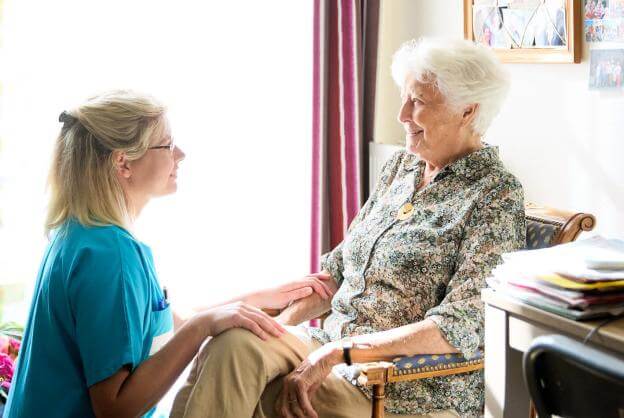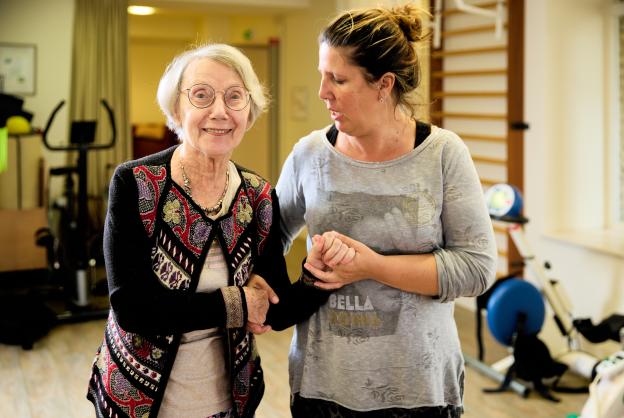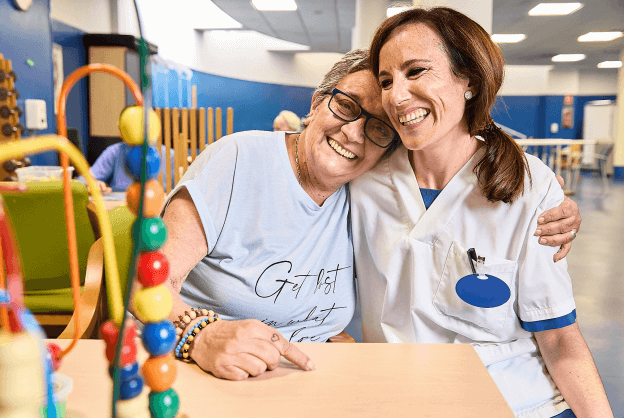Old age, the human and social challenge of our time
Ageing populations combined with longer life expectancy are making old age a real issue for society. Between loss of independence, isolation, dependency and Alzheimer's and other neurocognitive diseases, emeis explains the care and support solutions available.
Understanding the vulnerabilities and needs of the elderly
What is old age?
Old age is generally associated with people aged 80 and over. This phase of life is characterised by greater vulnerability, often associated with chronic illness, and can lead to a loss of independence. It's a state of increasing fragility that requires extra attention.
However, it is important to note that old age is not necessarily synonymous with illness, but rather with a new phase in life when the need for care and support may increase. Simple, everyday tasks become more difficult to perform. This is the first sign of dependence.
Why provide better support for the elderly?
Support in old age becomes necessary when an elderly person's independence declines, and they find it difficult to carry out everyday tasks. That's when they need help and support.
This loss of independence is, of course, encouraged by age and the natural ageing of the body, and can be accentuated by many other factors. Health problems, reduced physical or cognitive capacity, or social isolation are just a few examples.
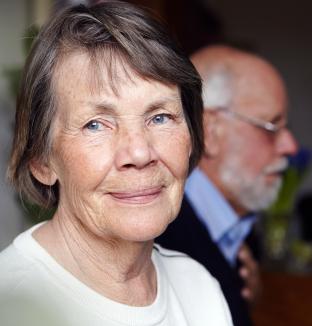
What can relatives and caretakers do?
Relatives and caretakers support their elderly loved ones who are losing their independence in their daily lives. They play an indispensable, and sometimes even vital, role in the care of dependent elderly people. In France, there will be around 8.8 million adult carers in 2021.
Carers carry out a range of tasks, from preparing meals to helping with washing, shopping and housekeeping.
Sometimes, family members and caretakers are overwhelmed by the growing needs of their loved ones, and their personal and professional lives can be put to the test. When this point is reached, families naturally turn to support solutions.
83 yo
is the average age at which dependency begins
21,1%
of the European population was over 65 in 2022
31,100
centenarians in France in 2024 (30 times more than 50 years ago)
Choosing the right support solution for the elderly
Nursing homes
Nursing homes offer a living environment designed specifically for elderly people who are losing their independence. These establishments offer personalised support, social, cultural, sporting and creative activities, as well as medical care.
First and foremost, it's a place where seniors can enjoy a rich social life and a schedule of activities that keep their cognitive reflexes alert. This environment provides secure, personalised support through the presence of trained care teams and medical monitoring of residents, with equipment adapted to their needs.
In nursing homes, our elderly also benefit from a diet adapted to their abilities and needs, thanks to an on-site catering service supervised by nutritionists.
The advantages of a nursing home:
- Personalised care and environment
- Stimulating and varied activities
- Maintaining social links
- A comfortable, safe and welcoming environment
- Respect for dignity and autonomy
- Regular, appropriate healthcare
- Balanced, professional-quality food
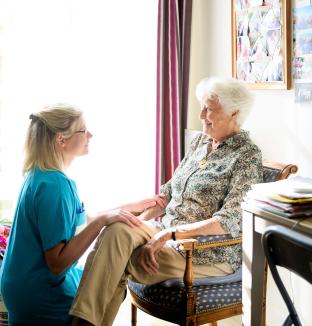
Day care and respite stays
It is possible to envisage partial care in a suitable medical establishment.
Here, the senior can come to rest for a temporary stay, for example during the absence of their caretakers, to prepare for an institution or to return home after hospitalisation. Day care can also be envisaged, in which case the senior enjoys the activities and social life but returns home at the end of the day. This gives the carer time off, on a regular and scheduled basis.
The advantages of respite care and day care:
- Maintaining social links
- Continuity of care and safety
- Gradual adaptation to life in a community
- Adapted holiday opportunities
- Helping people stay at home
Respite stays and day centers provide a safe and stimulating environment for the elderly, while offering respite to their caretakers, helping to preserve the quality of their relationship over the long term.
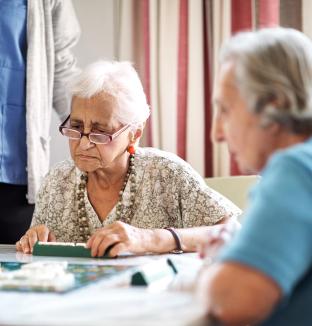
Home services
Staying at home is a priority for many elderly people. Home help services, such as domestic help and meal delivery, help elderly people to stay in their own homes.
The advantages of staying at home with a personal assistance service:
- Maintaining lifestyle habits
- Reassuring and familiar surroundings
- Close links with professional carers
- Home maintenance
- Possibility of assistance
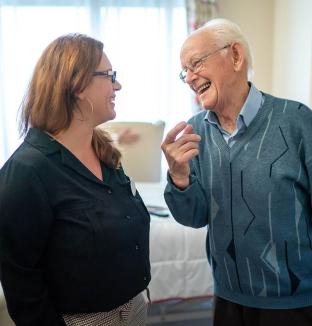
The right solution: talk to your GP
Caring for the elderly requires a comprehensive and personalised approach, involving support professionals, family and friends and society as a whole. The various solutions proposed aim to maintain the quality of life and dignity of the elderly, while supporting their families, and must above all correspond to the wishes and personality of the senior concerned.
The GP is the first point of contact for families and their elderly loved ones in making this choice.
Our articles on the same topic
Read about our approach to Alzheimer's disease, the jobs in a retirement home and a study on the link between Alzheimer's drugs and mortality.
Understanding and recognising Alzheimer's disease and related disorders
What is Alzheimer's disease?
Alzheimer's disease is a neurodegenerative disease. It is characterised by cognitive impairment (the brain's ability to interact with its environment) that can affect several brain functions, the best known of which is memory.
Alzheimer's disease and related disorders also have an impact on activities of daily living (administrative tasks, grooming, shopping, etc.), with the onset of dependency and loss of independence, requiring people to need help with everyday tasks.
Because of its frequency, impact and financial and societal cost, Alzheimer's disease and related disorders represent the major challenge of this century: the challenge of understanding, preventing and providing care.
What are the symptoms of Alzheimer's disease?
The progression of symptoms and of the disease itself varies from one individual to another. However, there are a few key symptoms that can alert those around you.
- Amnesia: partial or total loss of memory.
- Apraxia: difficulty performing concrete actions.
- Aphasia: loss of the ability to express oneself or understand language.
- Agnosia: difficulty recognising faces, objects, or one's own difficulties, etc.
When these symptoms appear in a dependent elderly person, you should consult your doctor and discuss the best solution with the patient and their family.
How can Alzheimer's disease be prevented?
Researchers working on Alzheimer's disease have identified several avenues that could help prevent the disease and slow its progression once it has taken hold. Their studies highlight the link between Alzheimer's-type cognitive disorders and certain cardiovascular risk factors such as smoking, a sedentary lifestyle and poor eating habits.
Certain factors can reduce the risk of developing the disease, such as vascular protection, social contact, brain stimulation and a balanced diet.
55,2 million
people in the world have Alzheimer's or a related disease
10 million
new cases of Alzheimer's appear every year worldwide
139 million
people will suffer from this disease by 2050, according to the WHO
Caring for Alzheimer's disease and related disorders
What specialist establishments are there?
The key is to find the right facility for each person's progressing condition, in line with their needs, abilities and the availability of their family and caretakers.
Rely on the residence's multidisciplinary team to suggest the unit best suited to your needs or those of your loved one:
- Adapted care units
- Activity and adapted care centers
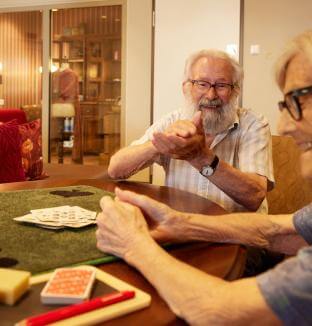
To find out more and continue reading...
Visit our recommendations and find out more about our residences, our medical ethics and our values!




